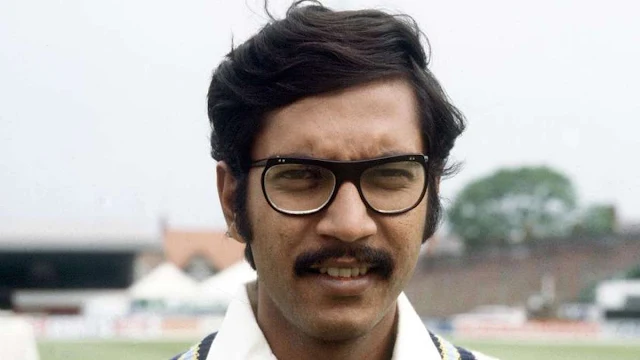By Harsh Thakor*
It is with great sadness that we note the passing of former Indian cricketer Anshuman Gaekwad, who succumbed to blood cancer at the age of 71. After a year of treatment at King’s Hospital in London, he returned home last month to continue his fight against the illness. The loss of Gaekwad is deeply felt in the Indian cricket community, where he was revered as a dedicated contributor to the sport.
Gaekwad hailed from the royal lineage of Vadodara, a historic city in Gujarat, and was one of the early cricketing legends, paving the way for future stars like Kiran More, the Pathan brothers, and the Pandya brothers. In the annals of cricket, some players are defined not just by their statistics, but by their remarkable spirit and character on the field.
While Gaekwad may not have been the most stylish batsman, he epitomized sheer batting bravery against formidable fast bowlers. His courage in facing intense pace will be remembered alongside his significant role in ushering Indian cricket into a new professional era.
Few batsmen have displayed the relentless spirit that Gaekwad exhibited during the infamous 1976 match at Kingston. It was a scene of chaos, reminiscent of an air raid, with the West Indies pace attack ruthlessly assaulting Indian batsmen.
Gaekwad embodied the heart of a military commander mounting a brave counteroffensive in a war. After briefly retiring hurt from a blow to the ear, he heroically returned to score 81 runs while battling an injury to his finger. Despite the West Indies bowlers launching lethal deliveries, Gaekwad stood resolute. Fast bowler Michael Holding remarked on how Gaekwad’s fortitude that day reached heights he had never witnessed in his entire career as a fast bowler.
In his memoir "Sunny Days," Gavaskar paints a vivid picture of Gaekwad's bravery:
“On the dot of lunch, Anshuman, who had taken many blows on his body and hands, was struck just behind the left ear. Another short ball came like a guided missile, knocking Anshuman’s glasses off… Anshuman Gaekwad represented our team’s remarkable fighting spirit. When he was forced to retire, our will to fight seemed to diminish as well.”
Gaekwad earned his reputation for tenacity early in his career. Debuting at a time when the Indian team was recovering from a disappointing tour of England, he came in at the crease following the injury of Tiger Pataudi, who had been struck in the face by Andy Roberts.
The 22-year-old Gaekwad made a determined 36 in a low-scoring match that India ultimately won, and later scored 80 in another victory. His defining moment came with a century against touring teams while playing for Combined Universities, showcasing his ability to drive off the front foot.
Gaekwad was an early cricketing legend who paved the way for future stars like Kiran More, the Pathan brothers, and the Pandya brothers
As he evolved into an opening batsman facing fast bowling, he adeptly adapted his game to be more effective off the back foot. In 1983, Gaekwad scored an epic 201 against Pakistan in Jalandhar, an innings that lasted 671 minutes and became the slowest double century in first-class cricket at the time. While his style may not have been flashy, he epitomized patience and resilience.
Some of his other notable performances include a 102 against the West Indies in Kanpur, a brave 55 in Barbados, and a solid 72 in Antigua against the West Indies pace attack in 1983, as well as commendable scores of 60 in Lahore and 74 in Faisalabad during critical moments in Pakistan in 1984.
Retiring in late 1984, Gaekwad finished his international career with 1,985 runs at an average of 30.07, including 2 centuries and 10 fifties across 40 tests and 70 innings.
His first-class career was distinguished, with Gaekwad playing in 206 matches, amassing over 12,136 runs, including 34 centuries and 47 fifties, at an impressive average of 41.56. He was among the youngest captains on the Indian first-class circuit during his time. Gaekwad’s dignified demeanor left a lasting impression during his later tenure as the national team coach in the late '90s. His coaching achievements include India’s 2-1 Test series victory against Mark Taylor’s Australia and winning a tri-series in Sharjah shortly thereafter.
Gaekwad was also at the helm when Anil Kumble achieved the remarkable feat of taking all 10 wickets in an innings against Pakistan in Delhi in 1999. His comprehensive understanding of the game and knowledge of its intricacies significantly influenced Indian cricket in various roles, including manager, selector, and member of the BCCI apex council.
Most recently, he served as president of the Indian Cricketers' Association.
---
*Freelance journalist


Comments